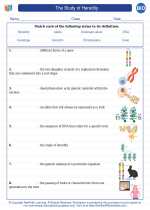Potential Energy
Potential energy is a form of energy that an object possesses due to its position or condition. It is often associated with the forces acting on an object and the potential for those forces to do work. There are several types of potential energy, including gravitational potential energy, elastic potential energy, chemical potential energy, and electrical potential energy.
Gravitational Potential Energy
Gravitational potential energy is the energy stored in an object due to its position in a gravitational field. The formula for gravitational potential energy is:
PE = mgh
Where:
- PE = gravitational potential energy (in joules)
- m = mass of the object (in kilograms)
- g = acceleration due to gravity (9.81 m/s^2 on Earth)
- h = height of the object above a reference point (in meters)
Elastic Potential Energy
Elastic potential energy is the energy stored in an object that is stretched or compressed, such as a spring or rubber band. The formula for elastic potential energy is:
PE = (1/2)kx^2
Where:
- PE = elastic potential energy (in joules)
- k = spring constant (in newtons per meter)
- x = displacement from the equilibrium position (in meters)
Chemical Potential Energy
Chemical potential energy is the energy stored in the chemical bonds of a substance. When chemical reactions occur, this energy can be released. For example, the energy stored in the bonds of food molecules can be converted into kinetic energy for muscle movement in living organisms.
Electrical Potential Energy
Electrical potential energy is the energy associated with the position of charged particles within an electric field. The formula for electrical potential energy is:
PE = qV
Where:
- PE = electrical potential energy (in joules)
- q = charge of the particle (in coulombs)
- V = electric potential (in volts)
Study Guide
To understand potential energy, it's important to grasp the concept of work, which is the transfer of energy. Work can be done on an object to give it potential energy, and that potential energy can then be converted into kinetic energy when the object is in motion.To master the topic, make sure to:
- Understand the different types of potential energy and their respective formulas.
- Be able to calculate potential energy in various scenarios, such as lifting an object, stretching a spring, or moving charged particles in an electric field.
- Recognize the relationship between potential energy and kinetic energy, and how they are interconverted.
- Be familiar with real-world examples of potential energy and its significance in different systems, such as in the human body, roller coasters, and energy storage devices.
Remember to practice solving problems and applying the concepts to different situations to solidify your understanding of potential energy.
.◂Biology Worksheets and Study Guides High School. The Study of Heredity

 Worksheet/Answer key
Worksheet/Answer key
 Vocabulary/Answer key
Vocabulary/Answer key
 Vocabulary/Answer key
Vocabulary/Answer key
 Vocabulary/Answer key
Vocabulary/Answer key
